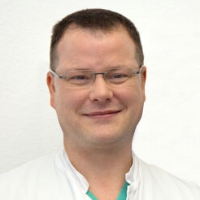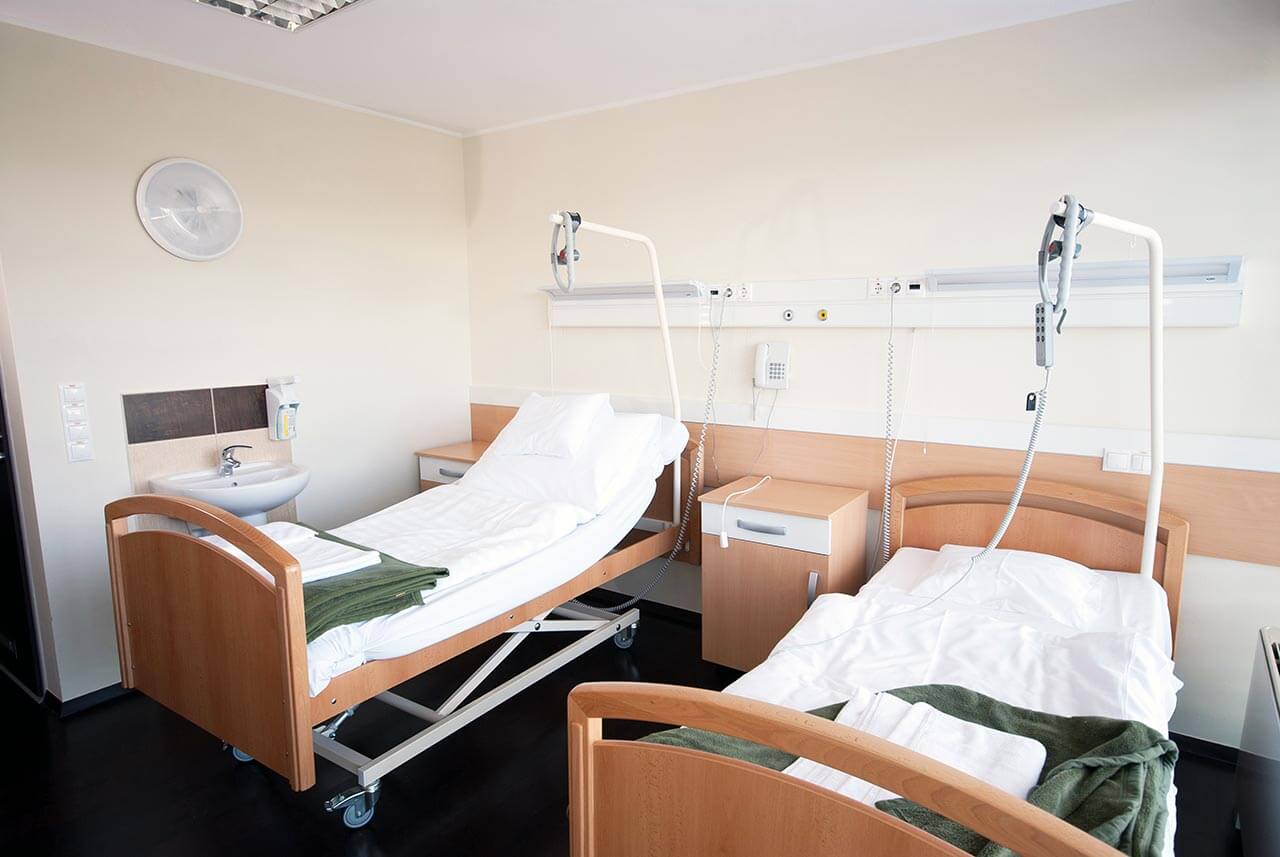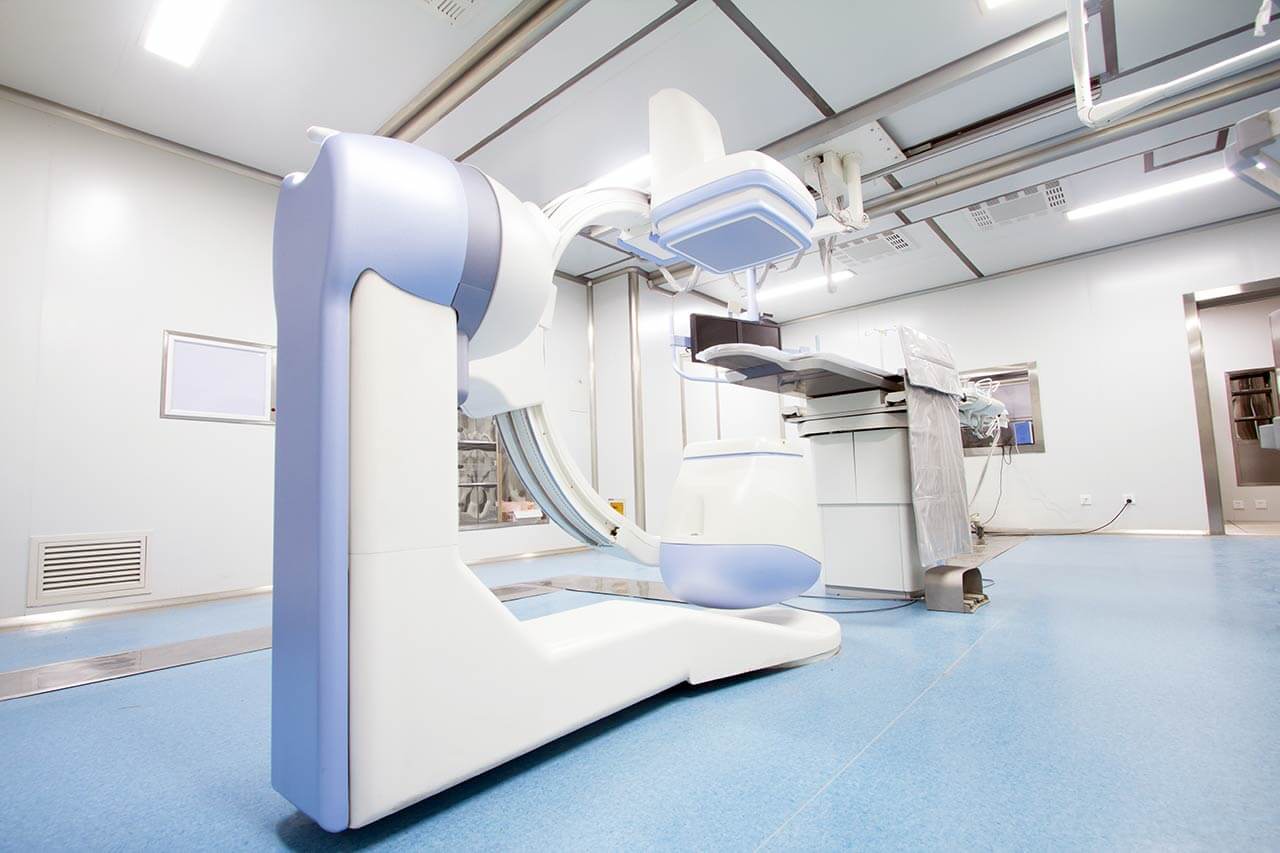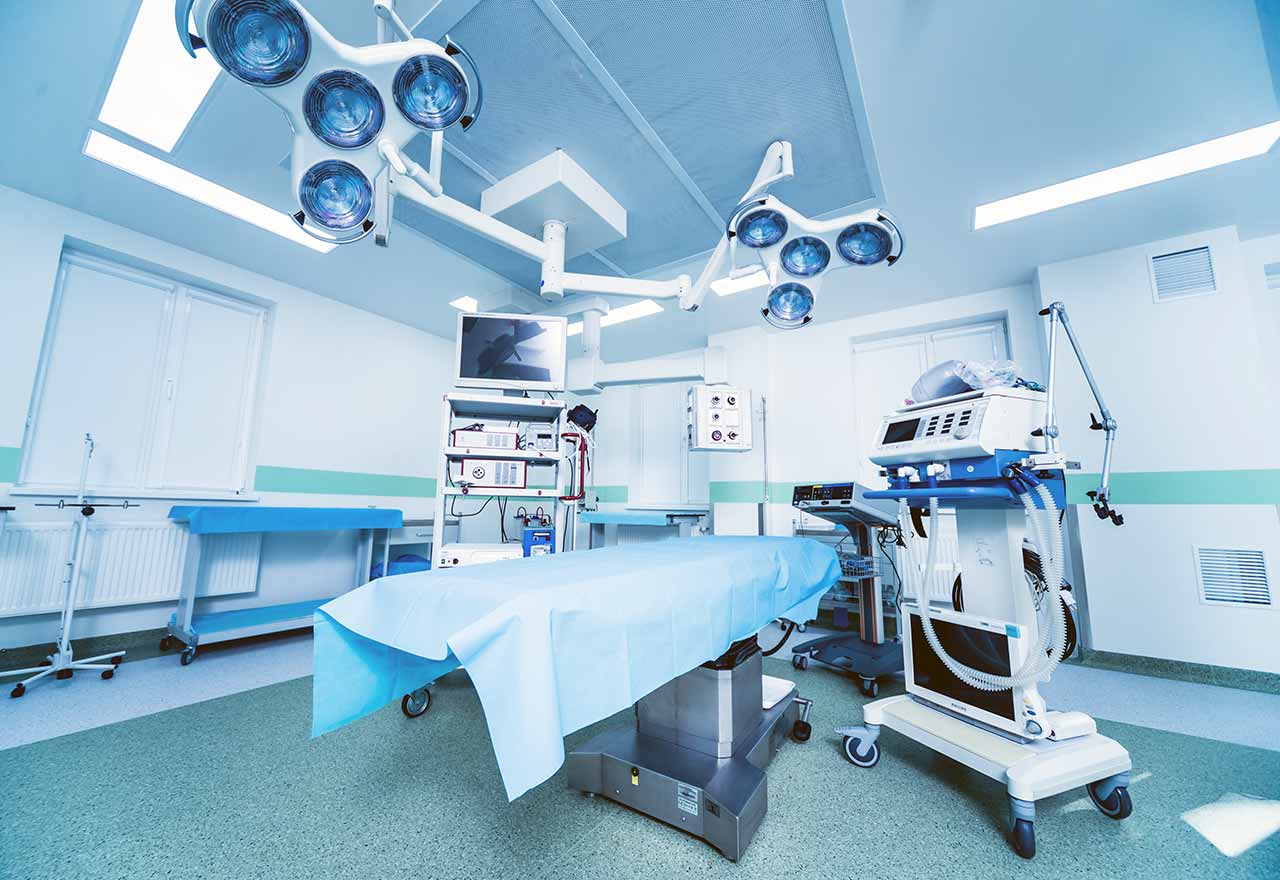
The program includes:
- Initial presentation in the clinic
- clinical history taking
- physical examination
- laboratory tests:
- complete blood count
- biochemical analysis of blood
- lipid metabolism (HDL/LDL, cholesterol,
triglycerides Lip(a), homocysteine) - blood coagulation analysis (aPTT, PT, INR)
- inflammation indicators (CRP, ESR)
- metabolic status (uric acid, total glucose, HbA1c)
- cardiovascular disease risk markers
- kidney function test (creatinine, urea)
- TSH, fT3, fT4
- microbiological smear
- doppler/ duplex receptacles of lower extremities
- CT with contrast from aorta and of lower extremities
- duplex peripheral arteries
- diagnosis diabetic neuropathy
- x-ray/ MRI of the foot
- preoperative care
- surgical stabilization and repositioning of foot bones
- symptomatic treatment
- control examinations
- the cost of essential medicines and materials
- nursing services
- full hospital accommodation
- developing of further guidance
Required documents
- Medical records
- X-ray of the foot (if available)
- MRI/CT scan of the foot (if available)
Service
You may also book:
 BookingHealth Price from:
BookingHealth Price from:
About the department
The Department of Adult and Pediatric Orthopedics, Trauma Surgery, Hand Surgery and Foot Surgery at the Hospital Oberberg Waldbrol offers all the possibilities of modern medicine for the diagnostics and treatment of patients with musculoskeletal diseases and injuries. The department's specialists are competent in conservative therapy and surgery on joints, bones, tendons, and muscles, including replantation surgery. When performing surgery, doctors widely use minimally invasive and arthroscopic techniques, with which they can perform the necessary manipulations through incisions of about 1 cm in length. The use of minimally traumatic techniques allows the patient to recover as quickly as possible in the postoperative period. In most cases, patients get back on their feet on the day of surgery. The department has 125 beds for patient hospital stays. Outpatient services are also available here. The medical facility admits both adults and young patients. Recognized for outstanding quality of medical care, the department holds numerous prestigious certificates, including DIOcert, CLARCERT, and EndoCERT certificates. The department also has the status of a regional Trauma Center certified by the German Trauma Society (DGU). The Head Physician of the department is Dr. med. Thorsten Franz.
The department's priority specialization is joint replacement surgery. The medical facility performs partial and total replacement surgery on knee, hip, shoulder, ankle, wrist, and small finger joints. Such surgical procedures are performed in a specialized center certified by EndoCERT. In most cases, the department's doctors use sparing minimally invasive techniques for joint replacement surgery, which allows the patient to regain mobility in the shortest possible time. An additional advantage is the use of an intraoperative navigation system, which ensures the highest precision (up to a millimeter) when implanting the artificial joint. The department was one of the first in Germany to use such a navigation device in combination with the BrainLAB system. Before each joint replacement surgery, the patient undergoes comprehensive diagnostics, based on the results of which the department's doctors thoroughly plan the upcoming surgical intervention. The specialists of the medical facility work only with high-quality prostheses, which have a service life of 15-20 years. The prosthesis can be made for the patient individually, if necessary. During the preparation for the operation, the surgeon also determines the optimal method for the patient to fix the prosthesis, namely with a special bone cement or without it.
The department's team of orthopedists has vast experience in revision knee and hip joint replacement surgery. Such operations are indicated in cases of wear of the previously implanted prosthesis or its components, loosening of the elements of the artificial joint, bone fractures in the place of fixation of the prosthesis, or infections. Operations to replace a prosthesis are considered complex because, in most cases, after primary joint replacement surgery, surgeons have to deal with bone deficits associated with the risk of instability of the new prosthesis. The department's doctors use special revision modular endoprostheses to ensure reliable fixation even in cases of extensive bone defects.
An important focus of the department's clinical practice is hip, knee, and shoulder arthroscopic surgery. The department's orthopedists brilliantly perform arthroscopic repair of the cartilage lining of the joint, reconstructive plastic surgery on cruciate ligaments, and surgery for meniscus tears and patellar injuries. Surgical interventions are performed through miniature skin and soft tissue incisions (only 5-6 mm) using an arthroscope, a thin tubular instrument with a built-in light source and camera. Patients therefore experience virtually no pain in the postoperative period and quickly return to their everyday lives.
The department's team of trauma surgeons conduct conservative and surgical treatment of injuries of varying severity, including spinal and pelvic injuries as well as multiple injuries. In cases of uncomplicated fractures, the specialists often use only a plaster cast, so they immobilize the fracture site until the bones heal. In cases of complex fractures, surgery (osteosynthesis) is usually required. The intervention involves the connection of bone fragments using special plates, rods, and screws for stable fixation of the fractured bone in an anatomically correct position until its complete fusion.
The department's doctors also regularly admit patients with hand diseases. It is the only medical facility in the region specializing in this medical field. The department successfully performs microsurgical interventions on the hand, including reconstruction of nerve endings and blood vessels, finger replantation, operations for rheumatic hand lesions, and finger replacement surgery. Both conservative and surgical methods are used to correct congenital and acquired hand deformities, depending on the complexity of the pathology and clinical indications. The department's specialists have unique experience in the endoscopic treatment of carpal tunnel syndrome using the Agee technique.
The department's range of services is complemented by the treatment of foot diseases and deformities. The medical facility mostly admits patients with hallux valgus, hallux rigidus, hammer toe deformity, Morton's neuroma, Achilles tendon ruptures, and heel spurs. Almost all surgical interventions on the feet are performed using minimally invasive techniques, which contribute to the quickest possible restoration of mobility.
The department's main clinical activities include:
- Orthopedics
- Joint replacement surgery
- Knee, hip, shoulder, ankle, wrist, and small finger joint replacement surgery, including revision replacement surgery
- Arthroscopy
- Hip arthroscopic surgery for impingement syndrome, labral lesions, articular cartilage lesions, hip tendon and ligament injuries, and loose articular bodies
- Knee arthroscopic surgery for articular cartilage lesions, cruciate ligament ruptures, meniscal tears, patellar injuries, and loose articular bodies
- Shoulder arthroscopic surgery for impingement syndrome, rotator cuff tears, shoulder dislocations, and loose articular bodies
- Joint replacement surgery
- Trauma surgery
- Treatment of injuries of any severity in adults and children within a certified Trauma Center
- Hand surgery
- Microsurgical reconstruction of nerve endings and blood vessels in the hand
- Finger replantation
- Surgery for rheumatic hand lesions
- Surgical repair of congenital and acquired hand deformities
- Foot surgery
- Repair of hallux valgus and hallux hybridus
- Repair of hammertoes
- Treatment of Morton's neuroma
- Treatment of ankle arthrosis
- Foot ligament reconstruction
- Foot tendon reconstruction
- Reconstructive plastic surgery for Achilles tendon ruptures
- Treatment of heel spurs
- Other medical services
Photo of the doctor: (c) Klinikum Oberberg GmbH
About hospital
The Hospital Oberberg Waldbrol is a progressive medical facility with a priority focus on effective treatment and high-quality patient care. The medical complex is an academic hospital of the University of Bonn, which guarantees direct access to medical innovations.
The medical staff of the hospital applies an individual approach to each patient, which allows the doctors to achieve the optimal treatment result. The hospital employs 550 highly qualified specialists who regularly undergo advanced training courses. The doctors of the hospital take part in both national and international congresses, which helps them stay informed on medical innovations and share personal clinical experience with their colleagues.
The hospital has 275 beds for inpatient treatment. It is worth noting that recently the hospital has been significantly restored, and therefore, in addition to the innovative equipment and competent personnel, the medical facility has advanced infrastructure and a modern design of the patient rooms.
The hospital includes the Center of Excellence for Vascular Surgery Oberberg, the only medical facility in the region, which offers high-precision diagnostics and effective treatment of all vascular diseases. It uses both conservative and classic surgical and interventional (for example, balloon catheterization) techniques.
In addition, the hospital has one of the most advanced systems for computed tomography (CT), which allows the doctors to get instant images with minimal radiation exposure to the body.
Photo: (c) depositphotos
Accommodation in hospital
Patients rooms
The patients of the Hospital Oberberg Waldbrol live in cozy and comfortable rooms designed in light colors. Each patient room has a shower and a toilet. The furnishings of a standard room include an automatically adjustable bed, a bedside table with a pull-out tray, a wardrobe for storing clothes, a table and chairs for receiving visitors, a TV, and a telephone. Wi-Fi is also available in the patient rooms.
The hospital also has enhanced-comfort rooms, which additionally include a refrigerator, a safe, and upholstered furniture. The bathroom has a hairdryer, bathrobe, toiletries, and towels.
Meals and Menus
The patients at the clinic are offered a daily choice of three menus. If, for some reason, you do not eat all the foods, you will be offered an individual menu. Please inform the medical staff of your food preferences prior to treatment.
The hospital also houses a cozy cafe that serves complex breakfasts and lunches, tasty main courses, and salads. The menu also includes a wide variety of desserts and hot drinks.
Further details
Standard rooms include:
![]() Toilet
Toilet
![]() Shower
Shower
![]() Wi-Fi
Wi-Fi
![]() TV
TV
Accompanying person
Your accompanying person may stay with you in your patient room or at the hotel of your choice during the inpatient program.
Hotel
You may stay at the hotel of your choice during the outpatient program. Our managers will support you for selecting the best option.




